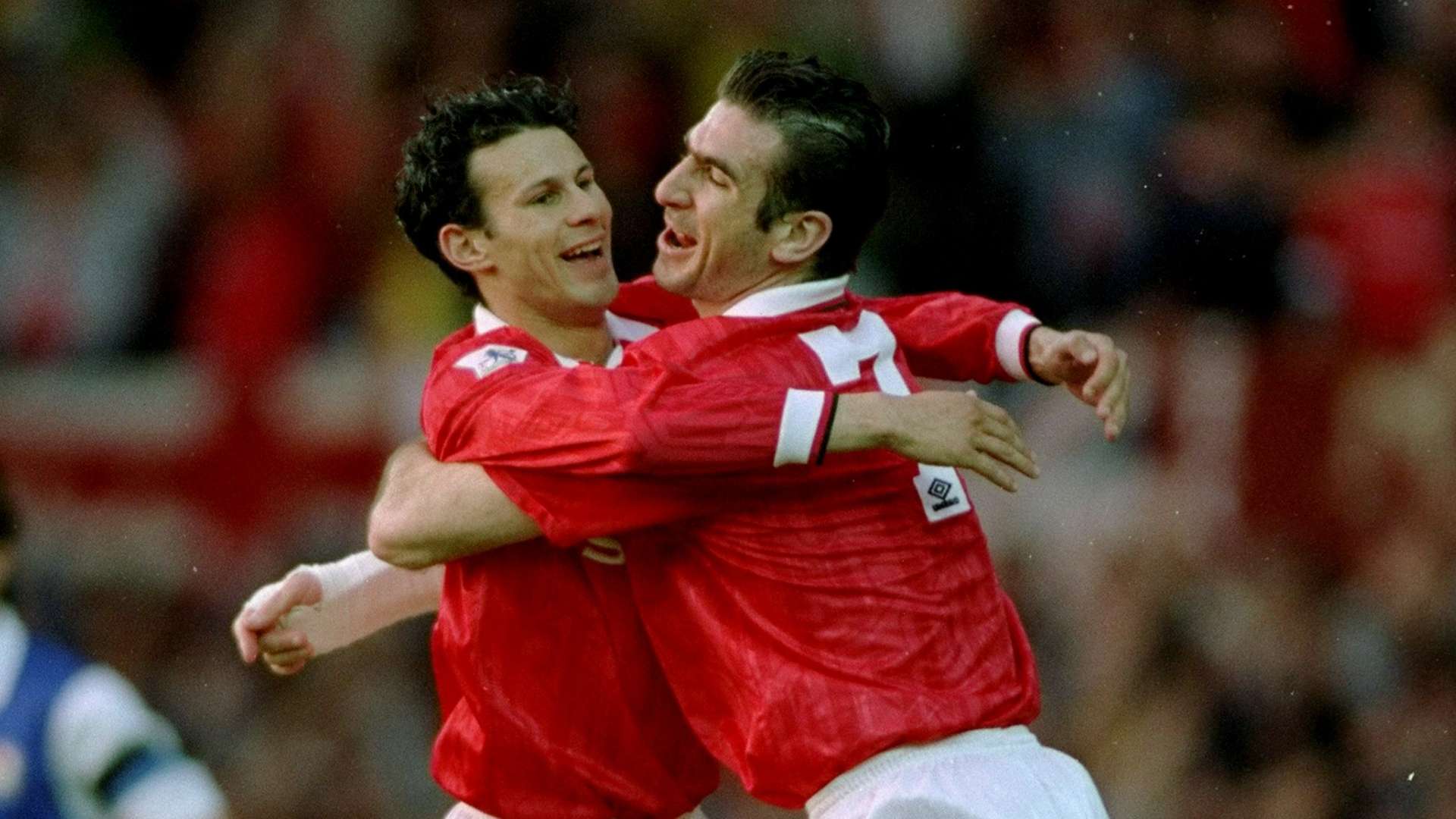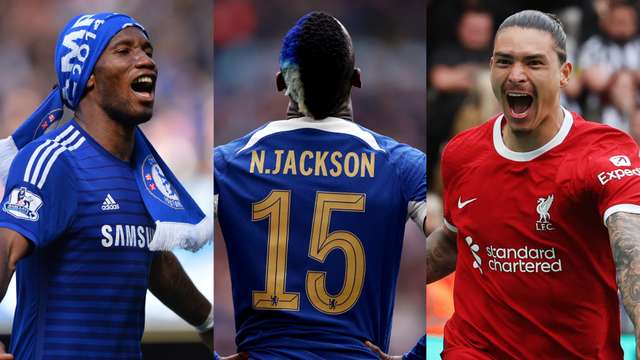It’s often said that football wasn’t invented in 1992, whenever the issue of a broken record on the part of a Premier League team or player is brought up.
But there is no denying that a period of disruption took place in the early-to-mid part of the 1990s. And that rupture can be said to have split top-level football history in two.
There are a number of reasons for that.
English football was out in front for innovation when three-points-for-a-win was introduced in 1981. Dwindling crowds and negative play had a detrimental effect on the football product and so it was decided that more attacking football should be encouraged. This was done by cutting the value of a draw in the hope that teams would push forward for a winner.
It was introduced by FIFA for the 1994 World Cup and it wasn’t until the 1995-96 season that it was rolled out by various other top leagues around Europe and the world.
Secondly, the offside law has always existed in one form or another – with minor tweaks here and there – but it had its biggest adjustment in 1990.
FIFA and IFAB decided that an attacker would be onside if he or she was level with the second-to-last defender rather than offside if level. It was a small but significant step which gave the impetus to forwards.
“When I went to Arsenal, George Graham worked on the offside trap quite a lot, so the back four we had then with the likes of Tony Adams, we were constantly putting our arms up and appealing to the linesmen to give us the decision,” says Viv Anderson, who won two European Cups with Brian Clough at Nottingham Forest.
“But it was one of those rules you’ve got to get used to as a player, and it was fine.”
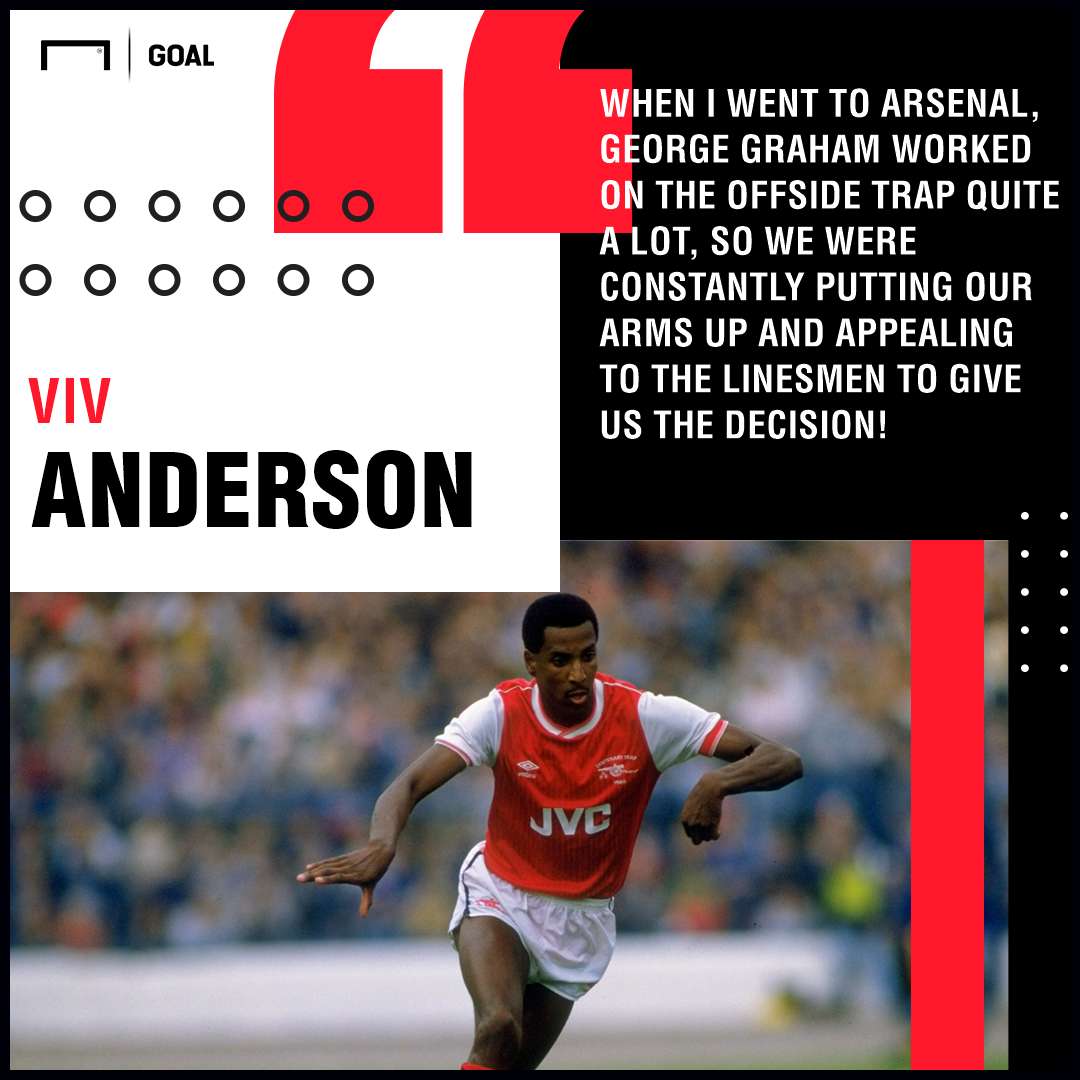 Getty/Goal
Getty/Goal
A further tweak was made in the 1995-96 season which decreed that it wouldn’t be an offence to be in an offside position. A player would only be offside at the moment the ball is played if he or she was deemed ‘active’. Those adjustments are second nature to players today – most of whom weren’t even born when the offside rule was overhauled.
Thirdly, the back-pass rule.
Before 1992, a goalkeeper was permitted to pick up or catch a pass played directly from a team-mate’s foot. Negative play – especially at the 1990 World Cup – ensured that FIFA would do all it could to make sure teams would attack more and stop stifling the game and wasting time by going back to base at every opportunity.
It was a seismic shift for goalkeepers, some of whom could scarcely control or pass a ball at all. The modern goalkeeper such as Ederson is as much a part of the build-up play as a striker but there was a time when the goalkeeper was barely more than a shot-stopper.
“My son’s in the Under-11s at Man City, and he’s been there since he was six or seven, he’s been brought up through it,” says Anderson.
“I cringe at times because of how they play, with the goalkeeper playing it out to the defenders.
“Peter Shilton wouldn’t be happy playing that way because he was never the best with the ball at his feet! But now they play balls in to centre-halves and you can’t believe it, even at Under-11s!”
And in 1992 came the Premier League itself. This is where the bone of contention lies. While Sky Sports have more or less monopolised the televised product since its inception, there has been a trend of regarding all records before that date as irrelevant.
But as the rule changes and innovations around this time would indicate, that is entirely fair. It is indeed a whole new ball game.
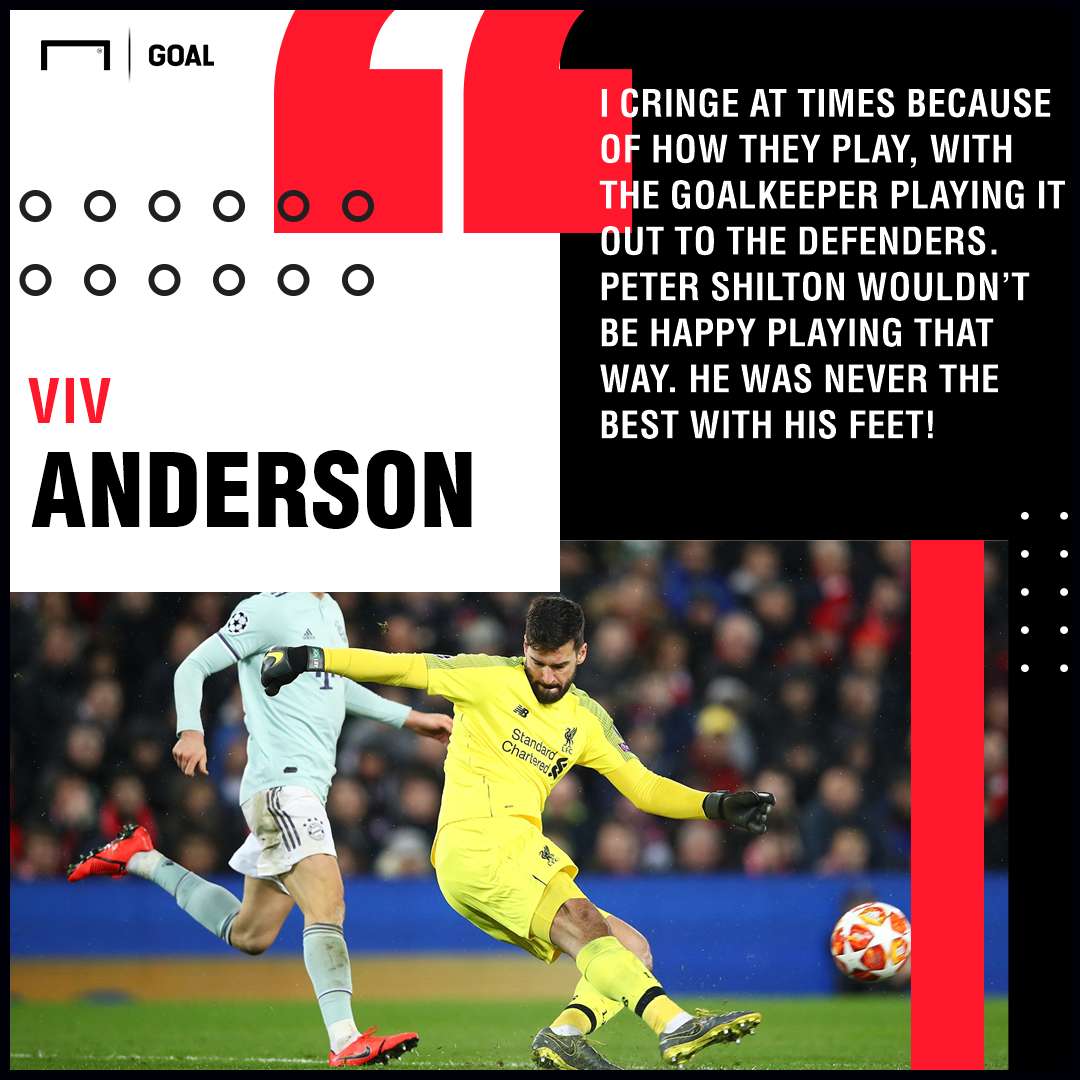
The Premier League was no simple rebranding exercise. Those clubs broke away from the Football League and set up for themselves. The 1990 World Cup delivered the emotional boost that football needed and made it loved again. Up to that point there had been violence in the stadiums, tragedies, awful facilities and little money.
But the breakaway clubs were given the freedom to start their own broadcast deals. It was the start of modern English football as we know it. The establishment of the Premier League – along with other factors - made English football the most-watched and best-supported in the world.
It’s done so by being big, brash, controversial and not always to the tastes of supporters of clubs lower down the food-chain but that doesn’t alter its power. The Premier League changed the face of English football forever and gave rise to a situation whereby the best players were no longer looking to leave it, they were clamouring to get in.
And that brings us to the Bosman Ruling. The landmark 1995 case involving Jean-Marc Bosman had a profound effect on the game. Up to that point, a club could demand a transfer fee for a player even if he or she wasn’t under contract.
That was challenged in the Bosman case. The ruling made sure players in the European Union and without a contract could freely change clubs without a transfer fee.
Foreign player quotas – with respect to EU nationals – were also abolished.
That altered the game completely. To that point, clubs could only field up to three 'foreign' players in UEFA competition. Many leagues also operated foreign player quotas but these were also done away with as they discriminated against nationals of EU member states.
That paved the way for teams to sign talent from all over to improve their squads. No longer would players be forced to stay put at home to satisfy eligibility criteria. They were set free.
In 1992, the old European Cup became the Champions League. The powers that be had watched with horror in 1987 when Real Madrid eliminated Napoli in the first round of the European Cup thereby depriving Italy – one of the biggest television markets – of its only team in the competition.
From then on plans were afoot for something grander and something safer. The big countries would be able to have their interests protected for longer in the new Champions League and a new era was ushered in.
“It was knockout and you couldn’t have a bad night,” Anderson says. “If you have a bad night, you’re out. I think it’s a lot harder to win [the old way].
“It’s 19 games or something now in the Champions League to win it, we had around eight games. If you don’t perform on the night, you’re out.”
On the tactical front, the victory won by Johan Cruyff's Dream Team in the Wembley final that year set the trend for the decades to follow. In beating Sampdoria, Cruyff had the vindication he needed to convince a skeptical membership that his methods would work.
A lot of the tactical trends of the past 25 years or so have been based on teams promoting Cruyff's principles or setting out to defy them. Look at the ideological split between Pep Guardiola at one end of the scale and Jose Mourinho at the other for recent examples of this.
Teams were either copying the Cruyff model or seeking to destroy it. Either way, it was a reaction to that 1992 European Cup-winning team.
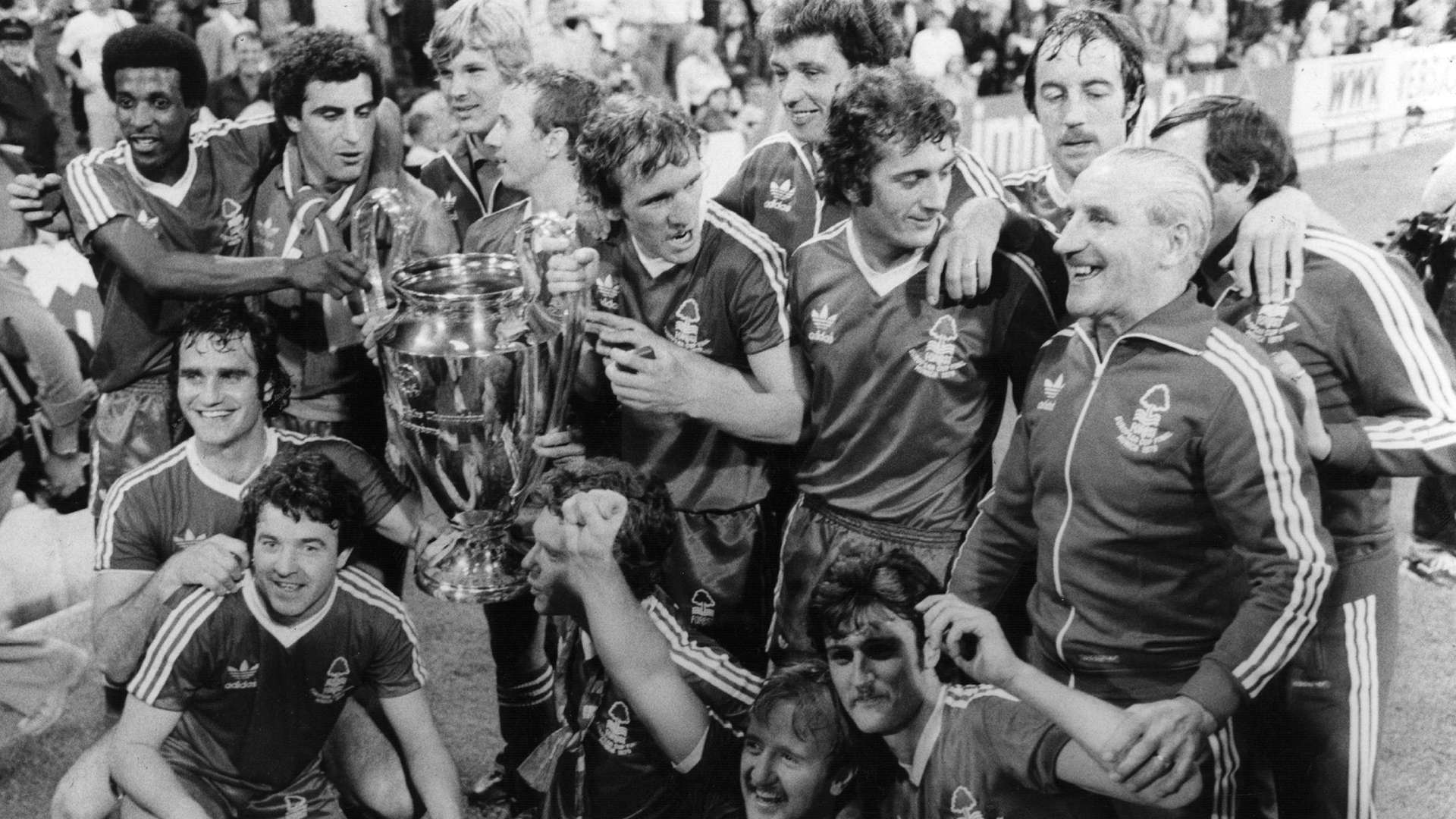
It has since grown to become the most important club competition on the planet. It is a million miles from the straight knockout tournament of yore. It is an entirely new format and one which redefined the football landscape.
And in that regard, teams would often be showing up to play against sides they knew next to nothing about. It’s not like today where clubs have access to the best analysis and scouting tools that money can buy.
“No reams and reams of dossiers and looking on the internet,” says Anderson.
“None of that. You just played Cologne, for instance, and you don’t know a thing about Cologne until you get on the pitch and that’s it.
“Maybe one of the scouts had gone over but I doubt that very much because money was at a premium then.”
That is to say nothing of the changes in diet and nutrition which have come along since those days too.
“When I started your pre-match meal was a steak with toast and French mustard,” says Anderson. “Everybody had it! As they subsequently learned later, it takes you eight hours to digest a steak!
“You’re running around with a steak in your stomach and that was a stable diet, everybody had it. Fillet steak and white toast! It’s changed a hell of a lot!”
So, while it may not be true that football was invented in 1992, it’s fair to say that it was reinvented around that time.
What we see today may well be the same game, but it’s a completely different sport.

